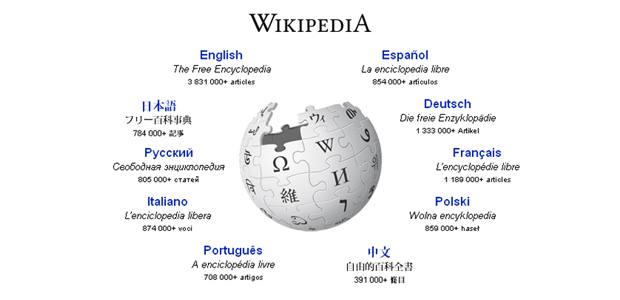Wikipedia plans web blackout in piracy law protest
Wikipedia joins a wave of online protest against the proposed US legislation Sopa – which it says will damage the “free and open internet” – by going offline for 24 hours on Wednesday.

The two contested bills are the Stop Online Piracy Act (Sopa) and the Protect IP Act (Pipa), which are aimed at preventing online piracy and protecting copyright.
But campaigners – including Google, Facebook, Twitter, eBay, Yahoo and Mozilla – say the proposed legislation is so broad that it will infringe on all online resources. Other sites taking part in the blackout include the sharing site Reddit, the blog Boing Boing, and Cheezburger, which hosts funny photos and videos of cats.
Sopa is currently being debated in the House of Representatives, and Pipa in the US Senate.
Opponents are particularly opposed to proposals that search engines and internet providers can be forced to block access to any web sites that offer, or link to, copyrighted material, saying that this runs contrary to the way the internet works and will stifle innovation.
The decision to take the English language Wikipedia sites offline was made after a debate on Sopa between 1,800 members of the Wikipedia community.
Read more: Is Wikipedia a reliable source? Factcheck investigates
Blackout: ‘extraordinary action’
Jimmy Wales, Wikipedia founder, said the blackout was an “extraordinary action” for the Wikipedia community to take and showed the strength of opposition.
“And while we regret having to prevent the world from having access to Wikipedia for even a second, we simply cannot ignore the fact that Sopa and Pipa endanger free speech both in the United States and abroad, and set a frightening precedent of internet censorship for the world,” he said.
Sopa and Pipa endanger free speech both in the United States and abroad, and set a frightening precedent of Internet censorship. Jimmy Wales, Wikipedia founder
Wikipedia is the world’s sixth most popular website, attracting 25 million visitors every day.
From midnight on Tuesday, Eastern time (05.00 GMT), the English language site will be down and visitors to the site will see a message urging them to email their elected representative, telling them why they oppose Sopa and Pipa.
The main supporters of the bill are the film and music industries, who want to clamp down on file-sharing and copyright infringement online. They say it will stop illegal sites making money from content that they don’t own.
Although Sopa and Pipa intend to protect US content online, the legislation in its current form will affect internet users and companies across the world if it is passed, Olivia Solon, associate editor of Wired.co.uk, told Channel 4 News.
“UK companies (or any non-US company) can be affected by having their revenue streams cut off if their websites are deemed to be hosting copyright-infringing content or links to copyright-infringing content. They could also have links to their websites potentially blocked by search engines such as Google.
“If a UK site is deemed to be hosting copyright-infringing content, it can be blocked from accessing revenue-generating services such as PayPal, Google Adwords and Visa/Mastercard. A site can be classified as “rogue” if it has a few pieces of infringing content – even if they are placed there by a commenter – and the rest of the site is compliant with copyright law.
“The bills propose that everyday web users in the US can be jailed for up to five years for posting copyrighted content. It may also cause serious problems for social media sites that centre around sharing links.”
Read more: The Wired.co.uk guide to Sopa and Pipa
Whitehouse hints at veto
Despite support for the proposals in the House of Representatives, the White House issued a statement at the weekend hinting that it would not back the bills in their current form.
While the statement acknowledged that online piracy is a serious problem, it added: “We will not support legislation that reduces freedom of expression, increases cybersecurity risk, or undermines the dynamic, innovative global internet”.
The move prompted Rupert Murdoch, a supporter of the legislation, to tweet: “So Obama has thrown in his lot with Silicon Valley paymasters who threaten all software creators with piracy, plain thievery.”
Supporters of Sopa are trying to reach consensus before putting it to a vote in the House of Representatives. However Pipa may be put up for a vote in the upper house on January 24.
Twitter will not be taking part in the online protests. When asked if the micro-blogging site would shut down, Twitter’s CEO Dick Costolo tweeted: “That’s just silly. Closing a global business in reaction to a single-issue in national politics is foolish”.
However when asked by Jimmy Wales to confirm his support for Wikipedia’s protest, he tweeted: “Was only referring to Twitter in response to explicit tweet suggesting we lacked courage for not shutting down.”
He later added that he did not intend to make a “value judgement”.
-
Latest news
-
Taylor Swift’s new break-up album breaks records3m

-
NHS trust fined £200K for failings that led to death of two mental health patients3m

-
Sunak vows to end UK ‘sick note culture’ with benefit reform3m

-
‘Loose talk about using nuclear weapons is irresponsible and unacceptable’, says head of UN’s nuclear watchdog3m

-
‘There wasn’t an Israeli attack on Iran,’ says former adviser to Iran’s nuclear negotiations team7m

-





